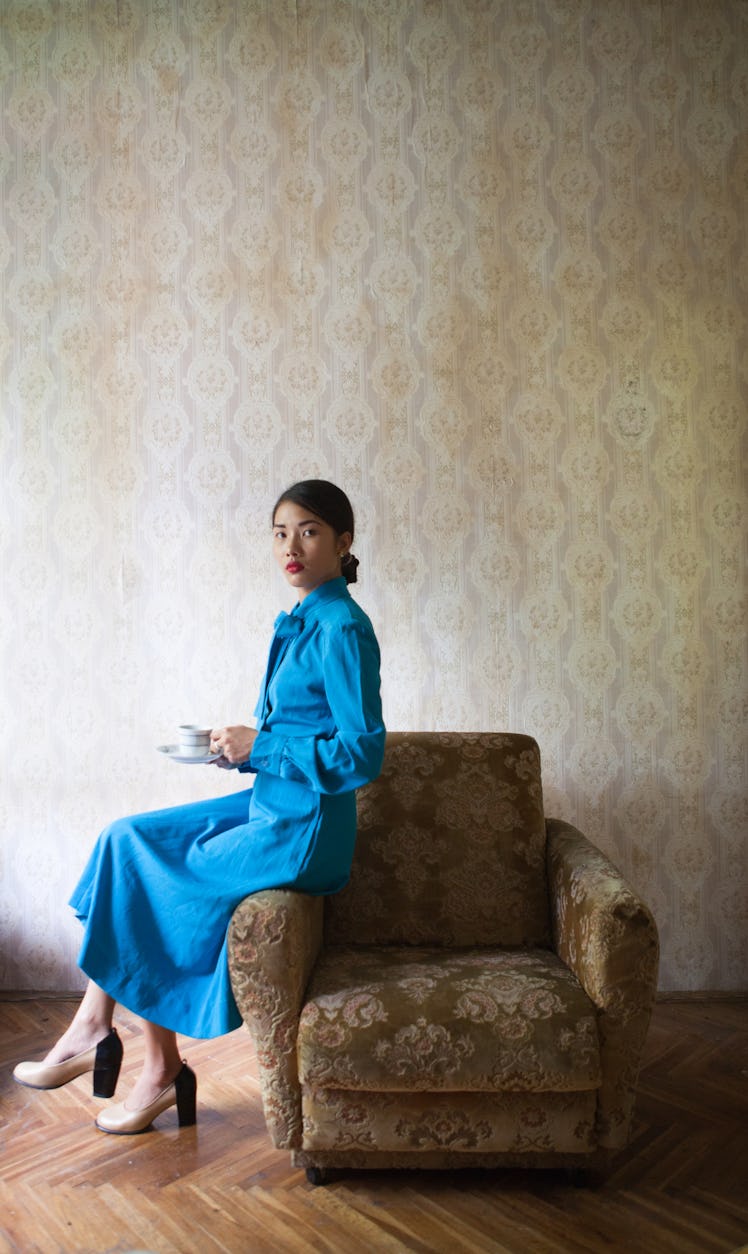
Here's How To Tell If You're In Love With Who Your Partner Was, Not Who They Are
Whether your local food co-op moved the cheese to a different aisle or you got a new haircut that was literally not what you wanted at all — change isn't always easy. From school to jobs, work, or family, life is full of transition. And when you're in a relationship, your partner's individual changes sometimes impact you as well. It's completely natural if your partner has changed since you started dating. Maybe they started wearing linens all the time (#goals), or they got a big promotion at work. Or perhaps they had a spiritual awakening on a hike with their stepdad and decided they didn't want to drink anymore, along with attending weekly mediation hour.
"Just like you can count on the fact that the sun rises in the east and sets in the west, you can also count on the fact that people do change over time," Dr. Gary Brown a prominent couples therapist in Los Angeles, tells Elite Daily. "For people who are growing and evolving, this is a very natural progression."
Change is a natural part of life. Still, it can be painful or intimidating to face change on the day to day, especially within our romantic relationships. "Depending on their life circumstances, personal experiences, attitudes, values, and beliefs a partner can change in any number of ways," Dr. Brown shares. "The number of ways a partner — and ourselves — can change is limitless. This may or may not be positive from your perspective." If you've been dating your boo for a while, and you're starting to notice the ways they've changed you may be wondering how these new differences impact your relationship. You may even feel a sort of longing for who they were when you first started dating.
Dr. Brown shares that there are many signs that you may be in love with who your partner used to be and not who they are now. "You find yourself trying to change your partner into something they were, as opposed to who they have become. You feel that you are losing your fire for your partner. You find yourself wanting to be with almost anyone else but your partner. You no longer like and respect who your partner is," Dr. Brown says. From losing respect for your significant other to feeling your own fire fade, handling individual change within a romantic relationship isn't always easy.
If you sense that you're starting to feel less than impressed with who your partner is becoming, Dr. Brown suggests channeling your inner strength towards openly discussing with your partner how you're feeling. "Once you have become aware of this downward spiral, you really need to hack your courage and have what will likely be a series of conversations with your partner about what you are observing wishing them and yourself, and the impact all of this is having," Dr. Brown says.
Of course, Brown also shares that it's important to remember that while change may be intimidating at first, your partner changing doesn't mean your relationship is in danger. "Change isn't necessarily to be feared," Dr. Brown says. "Sometimes change is scary and painful. Sometimes change — even if scary and painful — can open new doors and possibilities that you might not ever had imagined could be possible in your life." Maybe your partner switching jobs was stressful at first, but now is really awesome, or perhaps going vegan really helped their stomach pains. Just because you didn't initially fall in love with this new version of your boo doesn't mean you won't begin to love them all the same.
If you're feeling ready to talk to your partner about the ways they've changed and how it affects you, Dr. Brown emphasizes the importance of being patient and openminded with your partner. "I would strongly suggest that you do everything you can to not be judgmental of your partner — there may be things going on with them that you had no idea about," Dr. Brown says. "You want to create a safe environment so that both of you can more freely talk about the changes one or both of you might have been going through and what all of this means for your relationship both now and in the future." When having big talks, it's important to create a welcoming environment for you and your partner to be able to openly share. Intentionally working on not interrupting or trying to only use "I statements" can be great practices in scenarios like this.
If you're starting to sense yourself trying to change your partner into who they used to be, dodging their invitations to hangout, or just feeling a little disconnected, try talking to your boo about your observations and feelings. Change is a natural part of life, but with it often comes the need for open dialogue and ensuring that everyone is on the same page. No matter where your parter is at, you deserve to feel supported and happy in your relationship, and that is something that never changes.